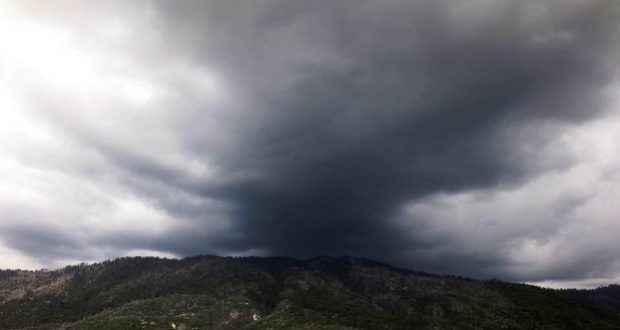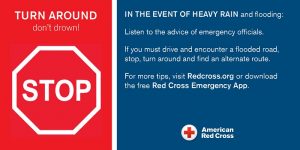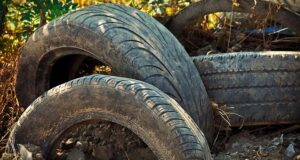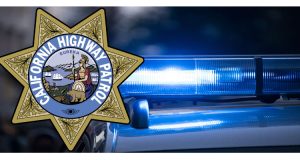MOUNTAIN AREA — While the National Weather Service in Hanford will allow a Winter Storm Warning and a Winter Weather Advisory in our area to expire with the passing storm, freezing temps will occur overnight. The warning took effect at 7 p.m. on Friday, Feb. 1 and continues through 4 p.m. on Tuesday, Feb. 5. The advisory began at 4 p.m. on Monday, Feb. 4 and also continues through Tuesday afternoon.
A Winter Weather Advisory for snow is in effect for the Madera, Mariposa, Fresno and Tulare County foothills from 9 p.m. on Monday, Feb. 4 through 4 p.m. on Tuesday, Feb. 5.
A Winter Weather Advisory for snow means periods of snow will cause primarily travel difficulties. Expect snow covered roads and limited visibilities, and use caution while driving.
A total snow accumulation of up to 6 inches is expected, says the NWS, with snow levels starting out around 2,500 feet this evening then lowering to 1,500 feet Tuesday.
Plan on slippery, snow covered roads later this evening into the midday hours Tuesday with possible travel delays.
Winter Storm Warning
A Winter Storm Warning means significant amounts of snow, sleet and ice will make travel very hazardous or impossible.
Heavy snow is expected in the mountains above 5,000 feet, with additional snow accumulation of up to 4 feet. Between 4,000 and 5,000 feet, 1 to 2 feet of snow are possible Monday and Tuesday. Winds could gust as high as 70 miles per hour along the crest. Snow levels will drop to around 5,000 feet today, then lower to 4,000 to 4,500 feet by Monday morning. Snow levels will drop below 4,000 feet Monday night and Tuesday.
Travel could be very difficult to impossible. The hazardous conditions could impact the morning or evening commute. Very strong winds could cause extensive damage to trees and power lines.
The latest road conditions can be obtained by calling 5 1 1.
The Red Cross is known for its response to emergencies, but it is also their mission to help others be prepared for emergencies.
One of the most important things is to know the difference between a flood watch and a flood warning. A watch means that a flood or flash flood is possible in the area, while a warning means that flooding/flash flooding is already occurring or will occur soon in the area. Here are a few additional tips:
- Follow Sierra News Online, listen to local area radio, NOAA radio or TV stations for the latest information and updates.
- Be prepared to evacuate quickly if directed and know your routes and destinations.
- Check your emergency kit and replenish any items missing or in short supply. Keep it nearby.
If residents are outdoors during a flash flood warning, here are some relevant safety tips:
- Avoid already flooded areas and areas that are subject to sudden flooding such as dips, low spots, canyons, washes etc. Stay away from rivers, streams, creeks and storm drains.
- If caught in a flash flood, try to get to higher ground and stay there. Just six inches of fast-flowing water can knock you over and two feet will float a car.
- Turn around and find another route if you come upon floodwater, rapidly rising water or barricades. Barricades are put up by local officials to protect people from unsafe roads. Driving around them will put you and your vehicle’soccupants at serious risk.
- Don’t allow children to play in or near flood water. It may be contaminated with sewage.
For those in the foothills and Sierra, winter weather safety is just as important:
- Bring your companion animals inside before the storm begins.
- Eat regularly. Food provides the body with energy for producing its own heat.
- Keep the body replenished with fluids to prevent dehydration. Drink liquids such as warm broth or juice. Avoid caffeine and alcohol. Caffeine, a stimulant, accelerates the symptoms of hypothermia. Alcohol, such as brandy, is a depressant and hastens the effects of cold on the body. Alcohol also slows circulation and can make you less aware of the effects of cold. Both caffeine and alcohol can cause dehydration.
- Check on relatives, neighbors, and friends, particularly if they are elderly or if they live alone.
- Talk with your family about what to do if a winter storm watch or warning is issued. Discussing winter storms ahead of time helps reduce fear, particularly for young children.
- Check on relatives, neighbors, and friends, particularly if they are elderly or if they live alone.
If you have to drive in winter conditions, we recommend always having an emergency supplies kit in your vehicle that includes supplies such as:
- Blankets or sleeping bag
- Extra set of dry clothes
- Newspaper for insulation
- Plastic bags for sanitation
- High-energy snacks
- Cell phone car charger
Sleet and freezing rain can make driving hazardous. If you have to be on the road, we encourage you to let someone know your destination, route and when you anticipate on arriving.
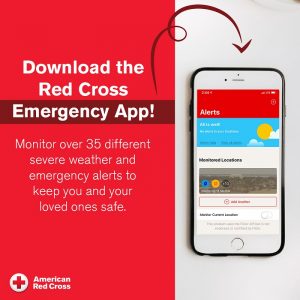 The most important thing to stress is that if there are evacuation orders, residents need to adhere to those orders. Residents can also download the Emergency app by Red Cross that allows you to monitor more than 35 different severe weather and emergency alerts to help keep safe.
The most important thing to stress is that if there are evacuation orders, residents need to adhere to those orders. Residents can also download the Emergency app by Red Cross that allows you to monitor more than 35 different severe weather and emergency alerts to help keep safe.
National Weather Service Watches, Warnings and Advisories
National Weather Service forecast for Yosemite Valley
This article was updated on Sunday, Feb. 3, to reflect changing weather conditions.

